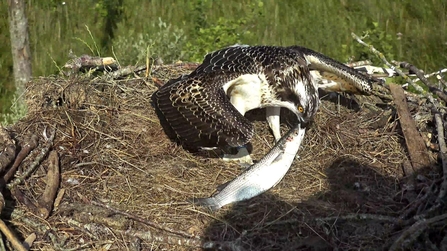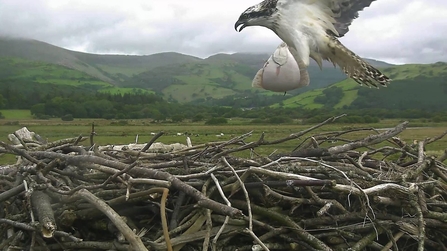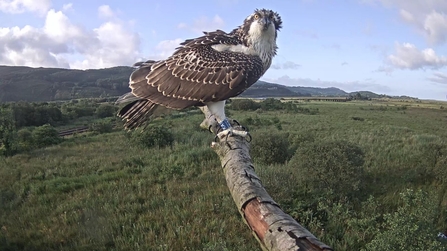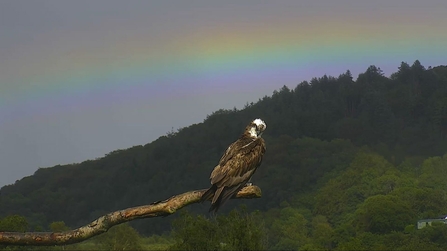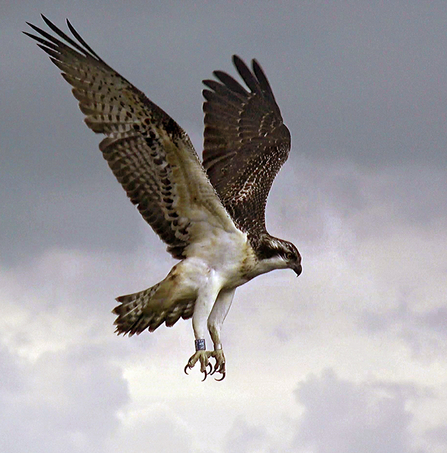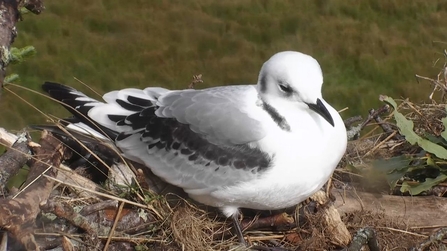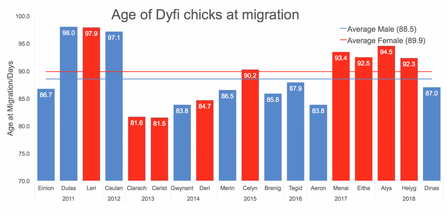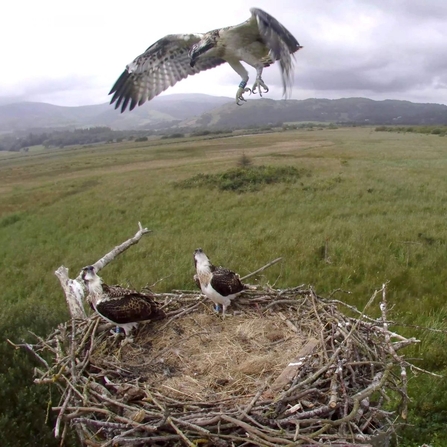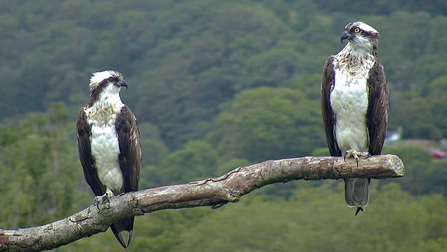Berthyn, Peris and Hesgyn are around 11 weeks old.
Here's a question that pops up regularly at this time of year for obvious reasons:
Q. Do osprey parents 'teach' their kids how to fish?
A. Not really.
But they have passed on to them all the basic knowledge they need to start fishing for themselves - in their genes.
Berthyn with a Monty-caught mullet

